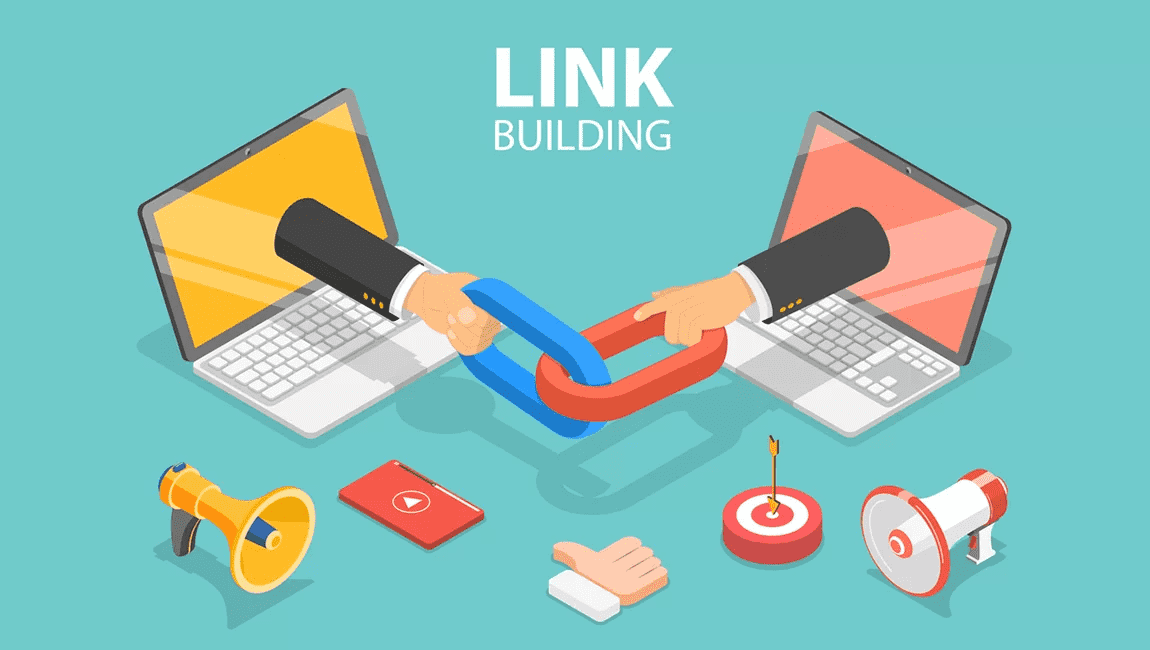Introduction
Link building is a fundamental aspect of search engine optimization that can significantly enhance a website’s visibility and credibility. However, many businesses find that their link-building efforts fail to yield the desired results. Understanding why these efforts might falter is crucial for developing more effective strategies. This article explores the common reasons for link-building failures and offers insights into how to avoid these pitfalls to ensure successful outcomes.
Common Link Building Mistakes
Link building is fraught with pitfalls that can undermine the effectiveness of your strategy. One significant reason for failure is the propensity to make common link building mistakes to avoid. These errors can range from relying on link schemes, which search engines frown upon, to choosing irrelevant sites for backlinks. Such practices fail to improve your site’s search engine ranking and may result in penalties.
Another common mistake is focusing on quantity over quality. While it may seem beneficial to accumulate many links, if these are low-quality or irrelevant, they can diminish your site’s authority. Additionally, failing to adapt link-building strategies to ever-changing search engine algorithms can result in outdated practices that fail to capitalize on new opportunities for improving site rankings.
Focusing on Quality Links
Quality is paramount when it comes to link building. Links from authoritative, high-quality sites carry more weight and can significantly impact your search engine rankings. Failing to focus on these quality links often undermines the overall efficacy of a link-building strategy. Low-quality links from spammy or unrelated sites can even be detrimental, leading to search engine penalties.
The emphasis should be on obtaining links from reputable sites relevant to your industry or niche. These are more likely to positively influence your rankings and attract genuine traffic interested in your content or products. Building a network of quality links takes time and effort, but the long-term benefits make it a worthwhile investment.
Ensuring Relevance of Links
The relevance of a link is crucial in determining its value. Links from sites unrelated to your content or industry can appear suspicious to search engines and users alike. They do little to enhance your reputation or authority in your field. Relevant links, on the other hand, contribute to a coherent link profile that signals credibility and trustworthiness. Moreover, those relevant links are more likely to attract the right audience, increasing the chances of engagement and conversion.
To ensure the relevance of your links, it’s essential to carefully select sites that share a common theme or target audience with your own. This approach boosts your site’s authority and enhances your chances of appearing in related search queries, driving more targeted traffic.
Building Natural Links
Search engines generally favor natural links, those acquired organically without resorting to spammy tactics. Attempts to manipulate rankings through artificial means can result in penalties. Google, for instance, is adept at identifying unnatural link patterns, which can decrease search rankings.
To build natural links, focus on creating link-worthy content that others naturally want to reference. This means producing high-quality, informative, and engaging content that attracts attention and earns links on its merits. As these links grow naturally, search engines view them as credible, significantly boosting your site’s ranking and authority.
Role of Quality Content
Quality content forms the backbone of effective link-building. Without valuable content, it becomes challenging to earn meaningful backlinks. Engaging, insightful, and well-researched content naturally attracts links from other sites looking to provide valuable resources to their readers. This, in turn, enhances your site’s authority and improves search engine rankings.
The types of content that earn the most links can vary, from in-depth blog posts and articles to valuable tools, infographics, and original research. The aim is to provide significant value to others in your industry or niche. By catering to the needs and interests of your target audience, your content becomes a natural link magnet, facilitating more straightforward and effective link-building.
Networking and Relationship Building
Building relationships with other businesses, influencers, and industry leaders can significantly improve the success of your link-building campaigns. Networking opens the door to opportunities like guest blogging, collaborations, and partnerships that naturally generate high-quality backlinks.
These relationships foster an environment where cross-promotion benefits all involved parties, enriching content offerings and expanding reach. By engaging with others in your field through social media, industry forums, and real-world networking events, you lay the groundwork for mutually advantageous connections that facilitate link-building.
Utilizing Effective Tools
The world of link building can be complex and challenging to navigate without the right tools. Many online tools are designed to simplify the process by helping identify potential link opportunities, track existing links, and analyze their performance. These tools can provide valuable insights into which strategies are working well and which might require adjustment.
Using link analysis tools, you can benchmark your performance against competitors, identify gaps in your link profile, and uncover new linking opportunities. Additionally, these tools can help you monitor the quality and relevance of your links, assisting in maintaining an optimal link profile that aligns with search engine best practices.
Continuous Monitoring and Adjustment
Link building is not a set-it-and-forget-it strategy. It requires ongoing monitoring and adjustment to remain effective. Search engines frequently update their algorithms, which can impact the effectiveness of your links. Regularly reviewing your link profile lets you align your strategy with these changes and maintain your competitive edge.
By analyzing your link performance, you can identify successful strategies and areas for improvement. This continual process of assessment and adjustment is key to sustaining long-term success in link building. Staying informed about industry changes and evolving SEO practices ensures your link-building efforts remain relevant and impactful.
Conclusion
In conclusion, while link building can be a powerful tool for enhancing your online presence, successful execution requires a strategic approach. By avoiding common mistakes and focusing on quality, relevance, and natural link building, you set the stage for improved search engine rankings and increased website traffic. Coupled with continuous monitoring and adaptation, these strategies can propel your link-building efforts toward sustained success, allowing your site to achieve its full potential in the competitive digital landscape.

 Why Your Link Building Efforts Might Fail
Why Your Link Building Efforts Might Fail  How to Request or Give Remote Control in a FaceTime Call on iPhone
How to Request or Give Remote Control in a FaceTime Call on iPhone  The Rise of Intelligent Automation in Business Operations
The Rise of Intelligent Automation in Business Operations  The Best Ideas for Designing Your Custom Printed Ring Binder
The Best Ideas for Designing Your Custom Printed Ring Binder  How Technology is Changing the Way We Play Hearts
How Technology is Changing the Way We Play Hearts  The Rise of Open Source: A Journey to Innovation and Collaboration
The Rise of Open Source: A Journey to Innovation and Collaboration  How SD-WAN Is Revolutionizing Business Networks
How SD-WAN Is Revolutionizing Business Networks  Effective Digital Advertising Strategies for Modern Businesses
Effective Digital Advertising Strategies for Modern Businesses  Tips for Marketing Dental Packages: Easy Ways to Grow Your Reach
Tips for Marketing Dental Packages: Easy Ways to Grow Your Reach 